- Home
- Robert Bryndza
Shadow Sands
Shadow Sands Read online
PRAISE FOR NINE ELMS
“A heart-pounding series launch.”
—Publishers Weekly
“Nine Elms is a taut thriller that sweeps up the reader into the world of Kate Marshall. Kate is a thoroughly realized character with troubles and virtues who will have you rooting for her through to the nail-biting end.”
—Authorlink
“A taut thriller that will keep readers guessing, this is a powerful start to a new series.”
—Parkersburg News and Sentinel
“While there are shades of The Silence of the Lambs in Nine Elms, due to a connection between an imprisoned monster and an investigator, Robert Bryndza has created wholly original characters and a story that is the very definition of a ‘page-turner’ and ‘unputdownable’!”
—The Nerd Daily
“With Nine Elms, Bryndza proves that he’s got another blockbuster saga on his hands. Kate Marshall is a bona fide superstar—an appealing mix of strength and vulnerability who shows that the damage of our past doesn’t need to define us or defeat us but that it can spark our determination to be smarter, stronger, and singularly successful. That’s a hero, and a notion, worth rooting for.”
—Criminal Element
“Robert Bryndza’s characters are so vividly drawn—even the slightest character—and fully human and uniquely imperfect. His plots are clever and original and cool, and his sense of timing is excruciatingly flawless. Nine Elms is Robert Bryndza spreading his already formidable wings to thrilling effect.”
—Augusten Burroughs, New York Times bestselling author of Running with Scissors
“So chilling, with truly terrifying characters and a hard-hitting story line that is gripping from start to finish. I will wait with bated breath for the next Kate Marshall thriller.”
—Rachel Abbott, Amazon Charts bestselling author
“Bryndza is my type of author, and Nine Elms is my type of book. Twisty, dark, and layered with a protagonist you root for from page one, this is a superb start to what promises to be another standout series.”
—M. W. Craven, author of The Puppet Show
OTHER TITLES BY ROBERT BRYNDZA
Kate Marshall Series
Nine Elms
Erika Foster Series
The Girl in the Ice
The Night Stalker
Dark Water
Last Breath
Cold Blood
Deadly Secrets
Coco Pinchard Series
The Not So Secret Emails of Coco Pinchard
Coco Pinchard’s Big Fat Tipsy Wedding
Coco Pinchard, the Consequences of Love and Sex
A Very Coco Christmas
Coco Pinchard’s Must-Have Toy Story
Stand-Alone Work
Miss Wrong and Mr Right
This is a work of fiction. Names, characters, organizations, places, events, and incidents are either products of the author’s imagination or are used fictitiously. Any resemblance to actual persons, living or dead, or actual events is purely coincidental.
Text copyright © 2020 by Raven Street Ltd.
All rights reserved.
No part of this book may be reproduced, or stored in a retrieval system, or transmitted in any form or by any means, electronic, mechanical, photocopying, recording, or otherwise, without express written permission of the publisher.
Published by Thomas & Mercer, Seattle
www.apub.com
Amazon, the Amazon logo, and Thomas & Mercer are trademarks of Amazon.com, Inc., or its affiliates.
ISBN-13: 9781542023368 (hardcover)
ISBN-10: 154202336X (hardcover)
ISBN-13: 9781542005708 (paperback)
ISBN-10: 1542005701 (paperback)
Cover design by Caroline Teagle Johnson
First Edition
For Maminko Vierka
Contents
START READING
PROLOGUE
1
2
3
4
5
6
7
8
9
10
11
12
13
14
15
16
17
18
19
20
21
22
23
24
25
26
27
28
29
30
31
32
33
34
35
36
37
38
39
40
41
42
43
44
45
46
47
48
49
50
51
52
53
54
55
56
57
58
EPILOGUE
Author’s Letter
Acknowledgments
About the Author
Hell hath no limits, nor is circumscribed
In one self-place, for where we are is hell,
And where hell is there must we ever be.
—Christopher Marlowe
PROLOGUE
28 August 2012
Simon gasped and choked on the brackish, freezing water as he swam for his life. The reservoir was huge, and he churned through inky-black water in a frantic front crawl, farther into the darkness and away from the drone of the boat’s outboard motor. The cloudy night sky meant no moon, and the only light came from Ashdean, two miles away, an orange glow that barely reached the reservoir and the surrounding moorland.
His trainers, heavy Nike Air Jordans, which he’d laced up tightly before leaving the campsite, were like lumps of lead on his feet, and he could feel them, along with his wet jeans, weighing him down. It was late summer, and where the icy water met the balmy night air, a thin rippling mist hung atop the water’s surface.
The boat was small and sturdy, and the man he’d seen beside it on the edge of the reservoir had been in silhouette. Simon’s flashlight had illuminated the body the man was lifting into the boat. A limp form bound tightly in a white sheet covered in blotches of blood and dirt.
It had all happened so fast. The man had dropped the body in the boat and attacked him. Simon knew it was a man, even though he was only a shadow. When he knocked the flashlight from Simon’s hand and struck him, there was a nasty, sharp smell of sweat. Simon briefly fought back, but he was ashamed how he panicked and ran into the water. He should have run in the other direction, back into the thick woodland surrounding the reservoir.
Simon struggled to breathe but pushed himself to swim faster. His muscles burned from the effort. His swimming training had kicked in, and he was counting one, two, three, his head coming up for air on the fourth stroke. Each time he reached four, the drone of the outboard motor was closer.
He was a strong swimmer, but his injuries slowed him down. He could feel a rattle as he inhaled. The man had struck him in the ribs, and the pain was throbbing. He was taking big breaths as he swam, but he’d swallowed water, and the air wasn’t getting to his lungs.
A wall of fog came at him, low across the surface of the water, and it enveloped him in a cold blanket. Simon thought this might save him, but suddenly the boat roared up directly behind him and struck him on the back of his head. He snapped forward and was plunged underwater. He felt pain as the outboard motor propeller gouged his flesh.
He thought he was going to black out; he could see stars, and his body was numb from the impact. He couldn�
�t move his arms. He kicked hard, but his waterlogged feet and legs didn’t seem to respond to his effort, moving almost lazily. He came back to the surface, surrounded by mist, and a calm voice in his head spoke to him.
What are you fighting for? Sink down and drown, where it’s safe.
He coughed and spat out the brackish water. His ears were ringing, blocking out any sound. The water around him rippled, and the bow of the boat appeared through the mist again. As it caught him under the chin, he heard his jaw crack, and he was thrown up and backward so he was lying on the surface of the water. The boat ploughed over him—he felt the hull on his chest and then the blades of the outboard motor gouge the skin, against his ribs.
Simon could no longer move his arms or legs. His head and face were numb, but the rest of his body was on fire. He’d never felt pain like it. The water felt warm on his hands. It was his blood, not the water. His blood was warm, and it was pouring out into the water.
He smelled petrol from the outboard motor, the water shifted again, and Simon knew the boat was coming back for him.
He closed his eyes and let the air out of his lungs. His last memory was being enveloped by the cold, black water.
1
TWO DAYS LATER
Kate Marshall took a breath and dove into the cold water. She came back to the surface and bobbed for a moment, the rocky Dartmoor landscape and gray sky hovering above the waterline in her diving mask; then she sank down into the reservoir. The visibility underwater was good. Kate’s teenage son, Jake, was first in and was treading water below her, the air bubbles rising from his regulator. He waved and gave her a thumbs-up. Kate waved back, shuddering as the cold trickled into her wet suit. She adjusted her regulator and took her first tinny breaths of oxygen from the tank on her back. It tasted metallic on her tongue.
They were diving at Shadow Sands, a deep man-made reservoir, a couple of miles from where Kate lived near Ashdean in Devon. The algae-covered rocks they’d jumped off banked steeply away, and the cold and gloom increased as she followed Jake deeper. He was now sixteen, and a sudden growth spurt in the past few months had made him almost as tall as Kate. She kicked out strongly to catch up to him.
At thirteen meters, the water took on a gloomy green hue. They switched on their headlamps, casting arcs of light around them that didn’t manage to penetrate the depths. A huge freshwater eel appeared out of shadows rippling between them, its blank stare caught in the light of their lamps. Kate shrank away from it, but Jake didn’t flinch, watching with fascination as the eel ribboned close to his head and back into the shadows. He turned to her, raising eyebrows behind his mask. Kate pulled a face and gave him a thumbs-down.
Jake had been staying with Kate for the summer, arriving after he sat his GCSE exams. In June and July they’d taken scuba lessons from a local diving school, and they’d been on several diving trips out to sea and to a sunken cave on the edge of Dartmoor with a phosphorescent, glowing wall. The Shadow Sands reservoir had been created in 1953 by flooding a valley and Shadow Sands village, and Jake had seen online that it was possible to dive down and see the sunken ruin of the old village church.
They were diving at the top end of the reservoir, a mile away from the sluice gates that drew water through two enormous turbines to generate electricity. There was a small area that was cordoned off for diving. The rest of the reservoir was strictly out-of-bounds. Kate could hear the low hum of the far-off hydroelectric plant, which was an ominous sound in the cold and dark.
There was something eerie about floating above what once had been a village. She wondered what it looked like down there. Their headlamps were lighting up nothing but silt and murky green water. She could imagine the once-dry roads and houses below them, where people used to live, and the school where children played.
Kate heard a faint beep and checked her dive computer. They were now at seventeen meters, and it beeped again with a warning to slow their descent. Jake reached out and grabbed her arm, making her jump. He pointed downward, to the left. A large, solid outline was emerging from the gloom. They swam toward it, and as they drew closer, Kate could see the huge curved dome of a church tower. They stopped a few feet from it, their headlamps illuminating a mass of freshwater crustaceans covering the dome. Below the dome, Kate could see the bricks of the church tower furred green with algae, and the arched stone windows. It was eerie to see this man-made structure, which once towered so high, so far down in the water.
Jake unclipped a waterproof pouch containing a digital camera from his belt and took a few photos. He looked back at Kate. She checked her dive computer. They were now at twenty meters. She nodded and followed him to the window. They hovered outside for a moment, the silt in the water thicker as they peered into the vast, empty cavity of the old bell tower. Crustaceans covered every inch of the inside walls, bulging out in places. In spite of the thick layer, Kate could make out the contours of the curved vaulted ceiling. The tower had four windows, one on each face. The window to the left was teeming with crustaceans, and the window to their right was almost completely blocked up, leaving a small arrow slit that reminded Kate of a medieval castle. The window opposite was clear, looking out into the dim green of the water.
Kate swam through the window into the tower. They stopped in the center, and she swam up to get a closer look at the vaulted ceiling. One of the beams that would have held the church bells ran across one side of the ceiling. The crustaceans had covered this, and they had matched the ceiling’s arched contours. A huge freshwater crayfish, more than a foot long, appeared from under the beam and scuttled across the ceiling toward her. Kate almost yelled out in shock as she jerked back, grabbing at Jake, her arms flailing in slow motion. As the crayfish passed above, its legs rattled on the shells of the tightly packed crustaceans. It stopped above them. Kate’s heart was now pounding. Her breathing increased, and she drew hard on her oxygen supply.
The crayfish’s antennae twitched, and it scuttled across the vaulted ceiling and vanished through the window opposite. Kate noticed something floating outside the window where the crayfish had escaped. She swam closer, her headlamp lighting up the heels of a pair of bright-red trainers. They shifted in the water at the top of the window.
Kate felt a surge of fear and excitement. She kicked out, and using the stone arch, she slowly pulled herself through the window. The shoes were directly above the opening and connected to the feet of a dead body, suspended in the water, like it was standing up, next to the church dome.
Jake had followed her through the window, and he jolted back, his head hitting the wall of the tower. Kate heard his muffled cry, and a spray of bubbles from his regulator crowded her vision. She reached out and grabbed him, unable to get a proper grip because of his oxygen tank. She pulled him away from the tower. Then she looked back at the body.
It was a young man. He had short dark hair and wore blue jeans with a silver buckled belt. On his wrist was a smart-looking watch. The remains of a ripped white T-shirt floated in strips around his neck. He had a well-built, athletic frame. His head was flopped forward, and his face, chest, and bloating belly were covered in cuts and lacerations. What most unsettled Kate was the look on his face. His eyes were wide open, with a look of fear. He was still, but suddenly his neck shifted and pulsed. She felt Jake grab at her again, and for a horrible moment, Kate thought the boy was still alive. His head twitched, and his jaw swung open as a black, shiny eel appeared between his broken teeth and emerged, seeming to ooze from his open mouth.
2
“Why were you diving today?” asked Detective Chief Inspector Henry Ko.
“Jake, my son, wanted to dive here. The water level has dropped in the heat . . . We thought we might see the sunken village,” said Kate.
She was sweating under her wet suit, and her hair was sticky and itchy from the water. Jake was slumped against a front wheel of Kate’s blue Ford, staring into the distance, his wet suit rolled down to his waist. He was very pale. Kate’s car was parked
on a grassy bank beside the reservoir. Henry’s squad car was a few feet away. The grass bank ended ten meters in front of the cars at the reservoir’s original water level, but since the drought there was a twenty-meter expanse of exposed rocks sloping down to the water’s edge. The rocks were green with algae, burned to a crisp by the hot sun.
“Can you point out where the body’s floating?” said Henry, scribbling in a notepad with a pencil. He was in his early thirties, athletic, and very well spoken. He looked like he should be prowling a Milan catwalk rather than attending a murder scene. His jeans clung to his muscled legs, and three buttons were undone on his shirt. A silver necklace nestled between his bronzed pectorals.
A young policewoman in uniform stood beside him with her peaked cap under her arm. She had long jet-black hair, tucked behind her ears, and her smooth, creamy skin was flushed from the heat.
“The body is underwater. We were twenty meters down. Diving,” said Kate.
“You know the exact depth?” he asked, stopping his scribbling and looking up at her.
“Yes,” said Kate, holding up her wrist with the dive computer. “It’s the body of a young boy. Nike Air Jordan trainers, blue jeans with a belt. His T-shirt was ripped to shreds. He looked around Jake’s age, eighteen, nineteen, maybe . . . There were cuts and lacerations on his face and torso.” Her voice cracked, and she closed her eyes. Is the dead boy’s mother out there? thought Kate. Is she worrying, wondering where he is?
Kate was an ex–police officer. She thought back to all those times she’d had to inform relatives a family member was dead. The deaths of children and young people were the worst: knocking on the door, waiting for it to be opened, and then seeing that look on the parents’ faces, the realization that their son or daughter wasn’t coming home.
“Did you see if the boy had injuries on his front or back, or both?” asked Henry.
Kate opened her eyes. “I didn’t see his back. His body was facing us, floating against the structure of the church tower.”
“Did you come into contact with anyone else? Boats? Other divers?”
“No.”
Henry crouched down next to Jake.

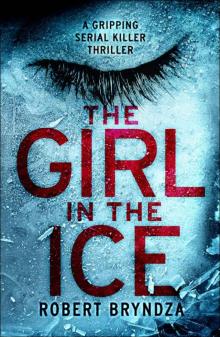 The Girl in the Ice: A gripping serial killer thriller
The Girl in the Ice: A gripping serial killer thriller Shadow Sands
Shadow Sands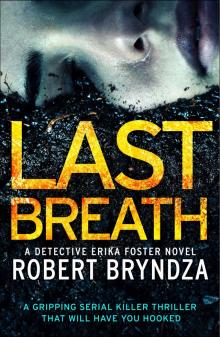 Erika Foster 04 - Last Breath
Erika Foster 04 - Last Breath A Very Coco Christmas
A Very Coco Christmas Nine Elms: The thrilling first book in a brand-new, electrifying crime series (Kate Marshall 1)
Nine Elms: The thrilling first book in a brand-new, electrifying crime series (Kate Marshall 1) Coco Pinchard, the Consequences of Love and Sex
Coco Pinchard, the Consequences of Love and Sex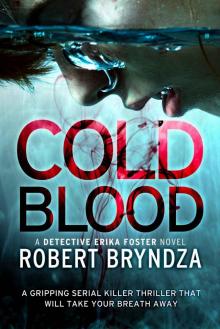 Cold Blood: A gripping serial killer thriller that will take your breath away
Cold Blood: A gripping serial killer thriller that will take your breath away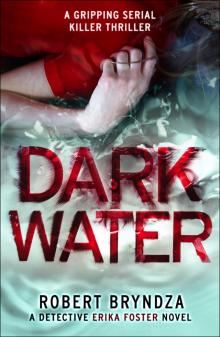 Dark Water: A gripping serial killer thriller
Dark Water: A gripping serial killer thriller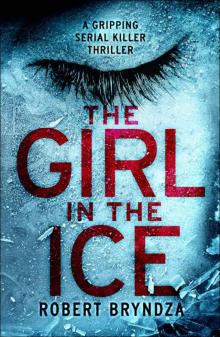 The Girl in the Ice: A gripping serial killer thriller (Detective Erika Foster crime thriller novel Book 1)
The Girl in the Ice: A gripping serial killer thriller (Detective Erika Foster crime thriller novel Book 1)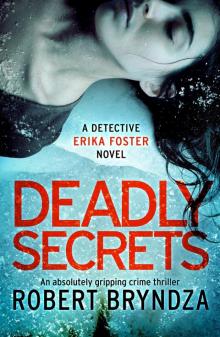 Deadly Secrets: An absolutely gripping crime thriller
Deadly Secrets: An absolutely gripping crime thriller Miss Wrong and Mr Right
Miss Wrong and Mr Right The Not So Secret Emails Of Coco Pinchard
The Not So Secret Emails Of Coco Pinchard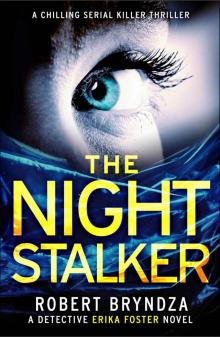 The Night Stalker: A chilling serial killer thriller (Detective Erika Foster Book 2)
The Night Stalker: A chilling serial killer thriller (Detective Erika Foster Book 2) Coco Pinchard's Must-Have Toy Story
Coco Pinchard's Must-Have Toy Story Coco Pinchard's Big Fat Tipsy Wedding: A Funny Feel-Good Romantic Comedy
Coco Pinchard's Big Fat Tipsy Wedding: A Funny Feel-Good Romantic Comedy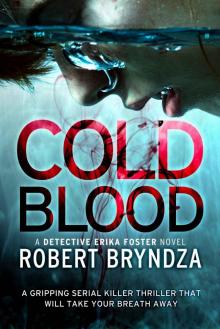 Cold Blood: A gripping serial killer thriller that will take your breath away (Detective Erika Foster Book 5)
Cold Blood: A gripping serial killer thriller that will take your breath away (Detective Erika Foster Book 5) The Coco Pinchard Boxset: 5 bestselling romantic comedies in one!
The Coco Pinchard Boxset: 5 bestselling romantic comedies in one! The Not So Secret Emails Of Coco Pinchard (A Romantic Comedy)
The Not So Secret Emails Of Coco Pinchard (A Romantic Comedy) Coco Pinchard, the Consequences of Love and Sex: A Funny, Feel-Good, Romantic Comedy
Coco Pinchard, the Consequences of Love and Sex: A Funny, Feel-Good, Romantic Comedy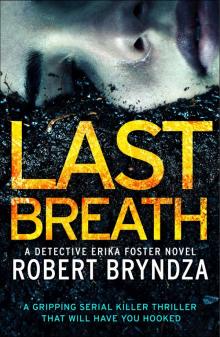 Last Breath
Last Breath